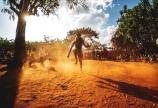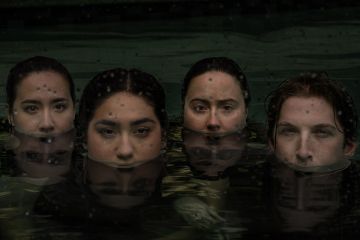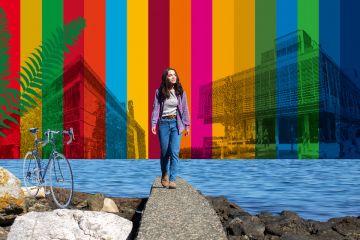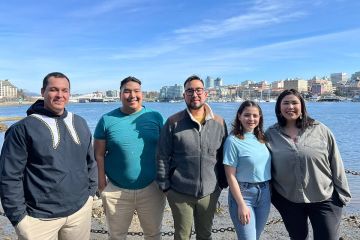Gule Wamkulu exhibition celebrates great dance of life
- Stephanie Harrington
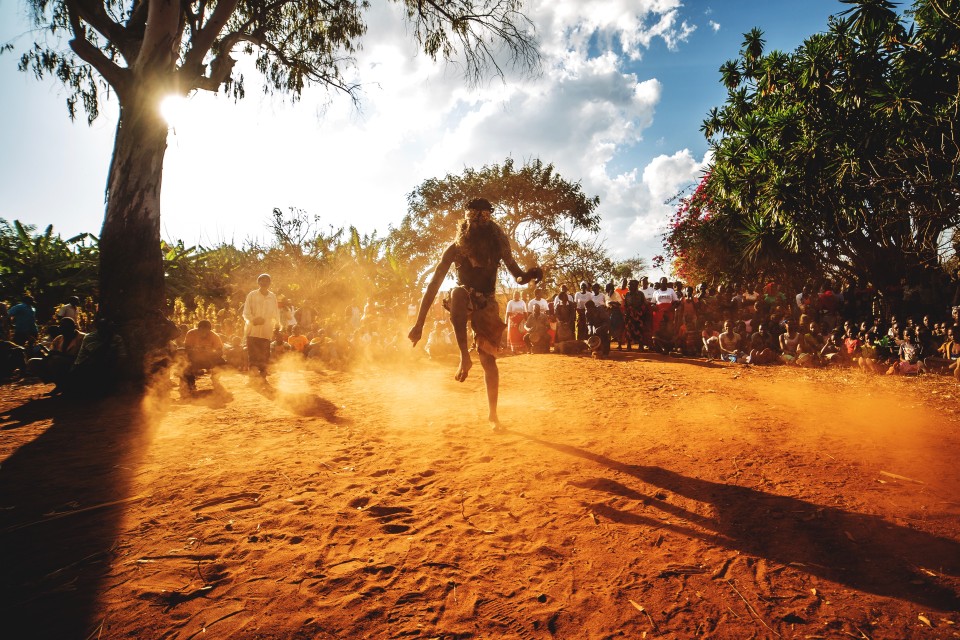
When Devi Mucina left Africa as a young man, he had no intention of returning to the ways of his people. But years later he found himself learning from the struggles and resistance of Indigenous Peoples in Canada.
After watching the masked dances of the Coast Salish peoples, Mucina, director of the University of Victoria’s School of Indigenous Governance, felt inspired to reconnect with his past and his family.
“That was a moment of feeling like, I need to go home and take up my responsibilities within my culture and reclaim the things colonialism was trying to fragment me away from,” Mucina says.
A trip home to the border of Mozambique and Malawi in 2018 proved to be an act of resistance for Mucina, a journey that sparked the beginnings of a new exhibition running at the University of Victoria’s Legacy Art Gallery until April 8.
Gule Wamkulu: Dancing Indigenous Governance is a powerful exploration of Mucina’s roots as an Indigenous Chewa man and an honouring of African ancestors and culture. Mucina is guest curator of the exhibition, along with UVic Social Dimensions of Health alumnus and artist Kl. Peruzzo de Andrade, who filmed and photographed their 2018 journey to southern Africa.
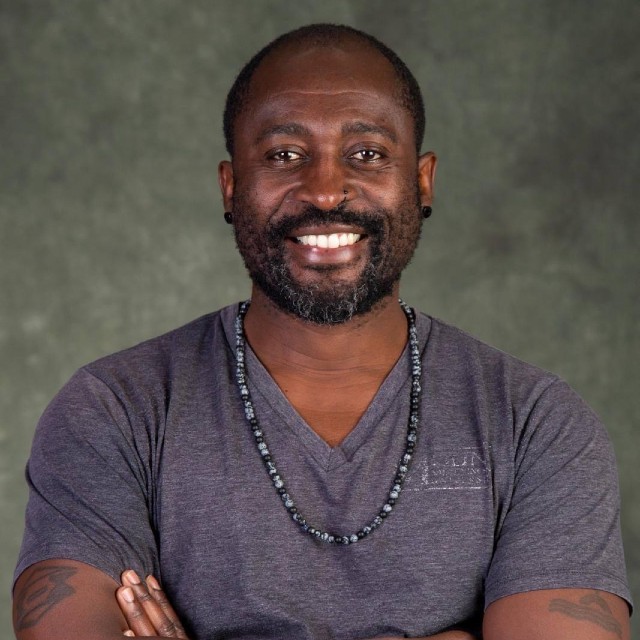
The exhibition also looks forward, seeking ways to connect the region’s Black diaspora and build community wellness while being respectful of Coast Salish expressions of sovereignty.
“Gule Wamkulu means, ‘the great dance of life.’ It’s a totalizing world view. It is the time when we are coming together with our ancestors,” Mucina says.
An opening celebration at Legacy Art Gallery on Saturday (Jan. 28) will feature Gule Wamkulu masked dances and ceremonies to honour Ubuntu ancestors and Elders. The event also includes speaker Barbara Hudlin, from the BC Black History Awareness Society, and UVic alumna Simone Blais, director of the documentary Dance Like Everybody’s Watching, alongside a contemporary dance performance.
Speaking ahead of Black History Month, Mucina says Gule Wamkulu is about creating space for the Black community to come together to talk about community wellbeing and health.
That’s about helping folks understand we’re connected as Black people who come from diverse backgrounds and diverse communities. By sharing this work, I am saying to our diverse African Canadian families, ‘We can hold you as whole beings.’”
—Devi Mucina, director of the UVic School of Indigenous Governance
As an Indigenous Governance scholar, Mucina says he tries to think locally but act globally, or vice-versa. The exhibition examines this concept, by considering how the African diaspora might address and engage in traditions while being respectful of the laws of these territories.
“We are relationally and globally connected to each other,” Mucina says. “When we are aware of that we have a better chance of resisting colonialism and making change benefiting all of us.”
The opening event for Gule Wamkulu: Dancing Indigenous Governance takes place on Saturday, Jan 28, from 3 to 5 p.m.
See Legacy Art Galleries for details.
Photos
In this story
Keywords: arts, community, Indigenous, international, colonialism, world cultures
People: Devi Mucina, Kl. Peruzzo de Andrade
Publication: The Ring

